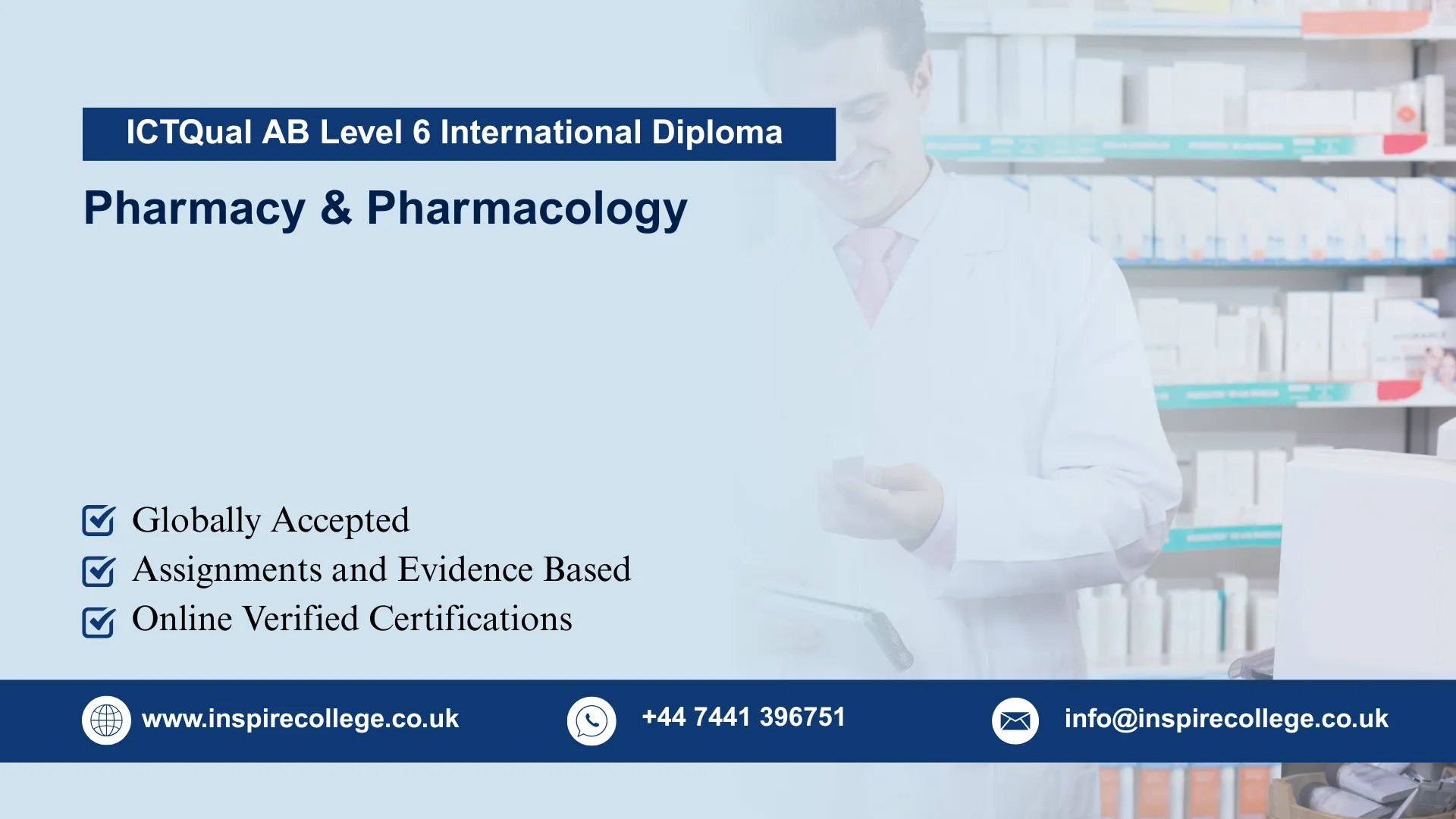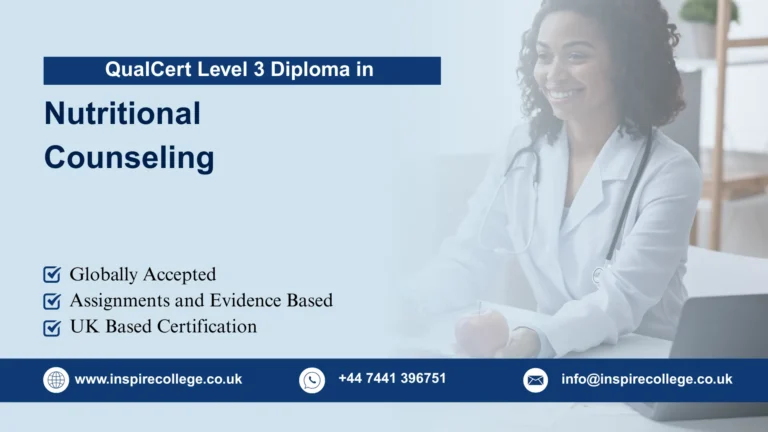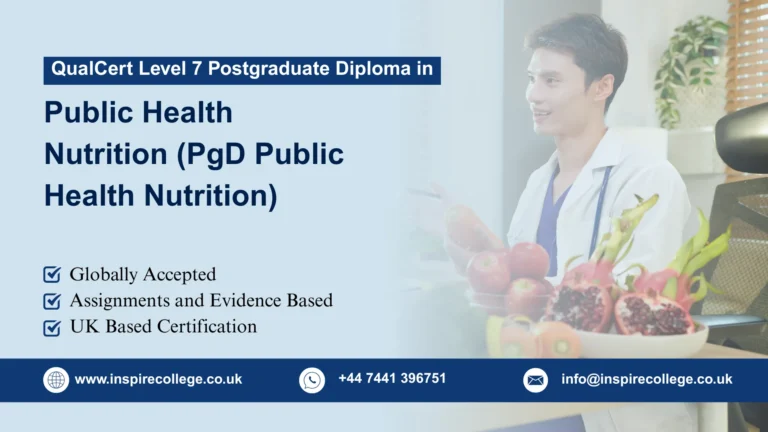
ICTQual AB Level 6 International Diploma in Pharmacy & Pharmacology
The ICTQual AB Level 6 International Diploma in Pharmacy & Pharmacology is a comprehensive and advanced programme designed to equip learners with the essential knowledge and practical skills required in modern pharmaceutical sciences. In today’s healthcare landscape, expertise in pharmacy and pharmacology is crucial for ensuring safe medication use, effective patient care, and the development of innovative therapeutic solutions. This three-year, 360-credit programme is suitable for both fresh learners entering the pharmaceutical field and experienced professionals seeking to enhance their expertise.
The purpose of this diploma is to provide a robust foundation in pharmaceutical sciences while fostering advanced understanding of drug development, pharmacokinetics, pharmacodynamics, and clinical pharmacy practices. Learners will explore a broad range of topics including medicinal chemistry, pharmacology of therapeutic agents, pharmaceutical formulation, quality control, regulatory compliance, and healthcare ethics.
Throughout the programme, learners will acquire practical skills in drug administration, patient counselling, laboratory techniques, and clinical research. They will also develop the ability to critically evaluate scientific literature, implement evidence-based practices, and apply regulatory standards in pharmacy and pharmacology.
Upon completion, graduates will be well-prepared to pursue careers in hospital and community pharmacies, pharmaceutical research, regulatory affairs, drug safety, and healthcare consultancy. They will also be equipped to assume leadership roles, contribute to pharmaceutical innovation, and improve patient outcomes. By integrating theoretical knowledge with practical applications, the ICTQual AB Level 6 International Diploma in Pharmacy & Pharmacology ensures learners are ready to excel in the dynamic and globally recognized pharmaceutical sector.
The ICTQual AB Level 6 International Diploma in Pharmacy & Pharmacology is designed for learners who aim to advance their knowledge and practical skills in pharmaceutical sciences. To ensure learners are fully prepared for this rigorous programme, certain entry requirements must be met.
Age Requirement
- Learners must be at least 18 years old at the time of enrolment.
Educational Requirements
- Applicants should hold a Level 5 Diploma, Higher National Diploma (HND), or equivalent in pharmacy, pharmaceutical sciences, biomedical sciences, or related disciplines.
- Fresh learners with strong foundational knowledge in chemistry, biology, or healthcare may also be considered.
- A related course, such as the ICTQual AB Level 5 International Diploma in Pharmaceutical Science, is recommended for foundational preparation.
Professional Experience (Optional)
- While not mandatory, learners with 1–2 years of relevant experience in pharmacy practice, clinical research, or pharmaceutical operations are encouraged to apply to enhance practical understanding.
English Language Proficiency
- Learners must demonstrate proficiency in English through IELTS (5.5 or above), TOEFL, or an equivalent recognised qualification to ensure effective engagement with course materials, assignments, and assessments.
By meeting these entry requirements, learners will be fully equipped to enrol in the ICTQual AB Level 6 International Diploma in Pharmacy & Pharmacology. This ensures they are prepared to develop the advanced theoretical knowledge, practical competencies, and professional skills necessary for a successful career in pharmacy, pharmacology, and the broader healthcare sector.
Mandatory Units
This qualification, theICTQual AB Level 6 International Diploma in Pharmacy & Pharmacology, consists of 36 mandatory units.
Year 1: Foundation of Pharmacy and Life Sciences
- Introduction to Pharmacy and Pharmacology
- Human Anatomy and Physiology
- Principles of Biochemistry
- Fundamentals of Microbiology
- Basic Pharmaceutical Chemistry
- General Pharmacology
- Pharmaceutical Calculations
- Introduction to Pathophysiology
- Communication Skills in Healthcare
- Health and Safety in Pharmacy Practice
- Pharmaceutical Dosage Forms
- Academic and Research Skills
Year 2: Intermediate Knowledge and Applications
- Organic and Medicinal Chemistry
- Pharmacokinetics and Pharmacodynamics
- Advanced Pharmacology
- Immunology and Biotechnology in Pharmacy
- Pharmaceutics and Drug Formulation
- Analytical Techniques in Pharmacy
- Pharmacognosy and Natural Products
- Clinical Biochemistry
- Hospital and Community Pharmacy Practice
- Drug Legislation and Ethics
- Epidemiology and Public Health
- Research Methods in Pharmacy
Year 3: Advanced Specialisation and Professional Practice
- Advanced Pharmacotherapy
- Clinical Pharmacy and Patient Care
- Toxicology and Safety Pharmacology
- Advanced Pharmaceutics and Novel Drug Delivery Systems
- Biotechnology and Biopharmaceuticals
- Advanced Pharmaceutical Analysis
- Regulatory Affairs and Quality Assurance
- Pharmacovigilance and Drug Safety
- Global Trends in Pharmacy and Pharmacology
- Professional Practice and Leadership in Pharmacy
- Research Project / Dissertation
- Continuing Professional Development and Career Skills
The ICTQual AB Level 6 International Diploma in Pharmacy & Pharmacology equips learners with a comprehensive blend of theoretical knowledge, practical skills, and professional competencies essential for modern pharmacy and healthcare practice. The programme progressively develops foundational, intermediate, and advanced expertise, ensuring learners are prepared for clinical, research, and pharmaceutical leadership roles.
Year 1: Foundation of Pharmacy and Life Sciences
Introduction to Pharmacy and Pharmacology
- Understand the role and scope of pharmacy and pharmacology in healthcare.
- Describe fundamental drug classifications and mechanisms of action.
- Demonstrate basic application of pharmacological principles in clinical contexts.
Human Anatomy and Physiology
- Explain the structure and function of major human body systems.
- Relate physiological processes to drug actions and pharmacological responses.
- Apply anatomical knowledge in patient assessment and healthcare practice.
Principles of Biochemistry
- Understand biochemical pathways relevant to drug metabolism.
- Analyse enzyme-catalysed reactions and their clinical significance.
- Apply biochemistry concepts in pharmaceutical formulation and therapy.
Fundamentals of Microbiology
- Identify pathogenic microorganisms and their impact on human health.
- Demonstrate aseptic techniques and laboratory microbiology skills.
- Apply microbiological principles to infection control and pharmacy practice.
Basic Pharmaceutical Chemistry
- Describe chemical properties of drugs and excipients.
- Apply principles of chemical stability and solubility to formulation.
- Conduct basic laboratory experiments safely and accurately.
General Pharmacology
- Explain drug mechanisms, therapeutic effects, and side effects.
- Relate pharmacological concepts to patient care scenarios.
- Demonstrate knowledge of dose-response relationships.
Pharmaceutical Calculations
- Perform accurate calculations for drug dosages, concentrations, and dilutions.
- Apply mathematical principles to pharmaceutical compounding.
- Ensure safe and effective medication administration.
Introduction to Pathophysiology
- Explain disease mechanisms and their clinical manifestations.
- Relate pathophysiological processes to pharmacological interventions.
- Integrate disease knowledge in patient assessment and care planning.
Communication Skills in Healthcare
- Demonstrate effective communication with patients and healthcare teams.
- Apply counselling techniques for safe and informed medication use.
- Enhance teamwork and collaborative practice in pharmacy settings.
Health and Safety in Pharmacy Practice
- Implement safety protocols in laboratory and clinical environments.
- Identify and mitigate occupational hazards in pharmacy.
- Promote a culture of health, safety, and compliance.
Pharmaceutical Dosage Forms
- Describe various dosage forms and their clinical applications.
- Understand formulation principles for oral, topical, and parenteral drugs.
- Apply knowledge to optimise drug delivery and patient adherence.
Academic and Research Skills
- Develop critical thinking and scientific writing skills.
- Conduct literature reviews and basic research projects.
- Apply evidence-based practices in pharmacy and healthcare.
Year 2: Intermediate Knowledge and Applications
Organic and Medicinal Chemistry
- Analyse chemical structures and their pharmacological relevance.
- Apply medicinal chemistry principles to drug design and development.
- Conduct laboratory experiments in synthesis and analysis of compounds.
Pharmacokinetics and Pharmacodynamics
- Explain absorption, distribution, metabolism, and excretion of drugs.
- Evaluate dose-response relationships and therapeutic indices.
- Apply pharmacokinetic data to optimise patient therapy.
Advanced Pharmacology
- Analyse mechanisms of action of advanced therapeutics.
- Assess drug interactions, contraindications, and adverse effects.
- Apply pharmacology in clinical case studies and patient care planning.
Immunology and Biotechnology in Pharmacy
- Understand immune system functions and applications in therapeutics.
- Describe biotechnological drugs and their clinical use.
- Apply immunology concepts in vaccine development and immunotherapy.
Pharmaceutics and Drug Formulation
- Develop knowledge of formulation science and dosage design.
- Apply excipient selection, stability, and delivery systems principles.
- Conduct formulation experiments for safe and effective drug delivery.
Analytical Techniques in Pharmacy
- Perform qualitative and quantitative analyses of pharmaceutical compounds.
- Use chromatographic, spectroscopic, and titrimetric methods effectively.
- Evaluate results for quality control and regulatory compliance.
Pharmacognosy and Natural Products
- Identify medicinal plants and their bioactive compounds.
- Analyse natural products for therapeutic applications.
- Integrate phytopharmaceutical knowledge into evidence-based practice.
Clinical Biochemistry
- Interpret biochemical markers relevant to disease and therapy.
- Apply laboratory data in clinical decision-making.
- Correlate biochemical findings with pharmacological interventions.
Hospital and Community Pharmacy Practice
- Demonstrate patient care and medication management in clinical settings.
- Apply ethical and legal standards in pharmacy practice.
- Develop problem-solving skills for real-world pharmaceutical scenarios.
Drug Legislation and Ethics
- Understand national and international pharmaceutical regulations.
- Apply ethical frameworks in clinical and research practice.
- Ensure compliance with professional standards and legal requirements.
Epidemiology and Public Health
- Analyse patterns of disease and medication use in populations.
- Apply epidemiological principles to clinical decision-making.
- Support public health initiatives and preventive medicine strategies.
Research Methods in Pharmacy
- Design, conduct, and analyse pharmacy-related research projects.
- Apply statistical methods to interpret experimental data.
- Integrate research findings into clinical practice and drug development.
Year 3: Advanced Specialisation and Professional Practice
Advanced Pharmacotherapy
- Design personalised therapeutic plans for complex diseases.
- Evaluate clinical outcomes and optimise drug therapy.
- Apply evidence-based guidelines in specialised patient care.
Clinical Pharmacy and Patient Care
- Demonstrate advanced patient assessment and counselling skills.
- Monitor therapy effectiveness and manage adverse drug reactions.
- Integrate clinical knowledge into multidisciplinary healthcare teams.
Toxicology and Safety Pharmacology
- Analyse toxic effects and safety profiles of drugs.
- Apply risk assessment methods for safe medication use.
- Conduct pharmacovigilance and monitoring activities.
Advanced Pharmaceutics and Novel Drug Delivery Systems
- Develop knowledge of controlled release, nanotechnology, and targeted delivery.
- Apply formulation strategies for improved bioavailability.
- Evaluate clinical effectiveness of novel pharmaceutical systems.
Biotechnology and Biopharmaceuticals
- Understand production and application of recombinant proteins and biologics.
- Analyse therapeutic use of biopharmaceuticals in patient care.
- Integrate biotechnology innovations into clinical pharmacy practice.
Advanced Pharmaceutical Analysis
- Perform high-level qualitative and quantitative analyses of complex formulations.
- Apply analytical data for regulatory submissions and quality assurance.
- Troubleshoot analytical procedures in laboratory settings.
Regulatory Affairs and Quality Assurance
- Implement regulatory guidelines in drug development and clinical practice.
- Conduct quality assurance and compliance audits.
- Ensure adherence to international standards in pharmaceutical manufacturing.
Pharmacovigilance and Drug Safety
- Monitor, evaluate, and report adverse drug reactions.
- Implement strategies to improve patient safety.
- Integrate pharmacovigilance principles into clinical and research practice.
Global Trends in Pharmacy and Pharmacology
- Analyse emerging pharmaceutical technologies and innovations.
- Evaluate global healthcare policies impacting pharmacy practice.
- Apply international best practices in clinical and industrial settings.
Professional Practice and Leadership in Pharmacy
- Develop leadership and management skills in healthcare and pharmaceutical teams.
- Apply ethical decision-making in professional practice.
- Plan and lead projects to improve pharmacy services.
Research Project / Dissertation
- Conduct an independent research project in pharmacy or pharmacology.
- Apply scientific methodology, data analysis, and critical evaluation.
- Present findings in a professional and academically rigorous format.
Continuing Professional Development and Career Skills
- Identify opportunities for lifelong learning in pharmacy and pharmacology.
- Develop career planning, networking, and professional growth strategies.
- Prepare for advanced roles in clinical, research, or regulatory pharmacy sectors.
Upon completing this programme, learners will be fully equipped with advanced theoretical knowledge, practical competencies, research skills, and professional expertise necessary to excel in hospital, community, industrial, and research pharmacy roles, both nationally and internationally.
The ICTQual AB Level 6 International Diploma in Pharmacy & Pharmacology is designed for learners who are motivated to advance their careers in pharmaceutical sciences, clinical pharmacy, and healthcare management. The ideal learners are those who seek to integrate theoretical knowledge with practical expertise and are committed to professional excellence.
- Learners who have a strong interest in pharmacy, pharmacology, and drug development.
- Individuals aiming to pursue careers in hospital pharmacy, community pharmacy, clinical research, regulatory affairs, or pharmaceutical industry roles.
- Healthcare professionals seeking to enhance their expertise in drug therapy, patient care, and clinical pharmacology.
- Students with foundational knowledge in chemistry, biology, or healthcare who want to build advanced skills in pharmaceutical sciences.
- Learners interested in research, evidence-based practice, and innovation in pharmacy and pharmacology.
- Individuals motivated to develop professional competencies, leadership skills, and ethical decision-making in healthcare settings.
- Learners who wish to gain an internationally recognised qualification to expand career opportunities globally.
This programme is ideal for both fresh learners entering the field and experienced professionals looking to formalise and enhance their practical and theoretical knowledge in pharmacy and pharmacology.
As an ICTQual AB Approved Centre, we provide learners with two distinct certification routes for the ICTQual AB Level 6 International Diploma in Pharmacy & Pharmacology, ensuring flexibility for both experienced professionals and fresh candidates.
Route 1: Experienced Professionals
- This route is designed for individuals with a minimum of 6 years of verifiable experience in pharmacy, clinical pharmacy, pharmaceutical research, or related healthcare fields.
- Experienced learners may be exempted from completing certain assignments based on prior knowledge and practical expertise, streamlining their path to certification.
- Learners will still complete selected modules and assessments to demonstrate competency and ensure adherence to ICTQual AB standards.
Route 2: Fresh Candidates
- This route is for new entrants or those with limited professional experience in pharmacy or pharmacology.
- Fresh learners are required to complete all 36 assignments over the three-year programme to develop comprehensive knowledge and practical skills.
- Assignments cover theoretical concepts, laboratory practice, clinical applications, and research projects to ensure readiness for professional practice.
All learners must enrol through our ICTQual AB Approved Training Centre to access course materials, expert guidance, learning support, and assessment resources. Upon successful completion, learners will receive the internationally recognised ICTQual AB Level 6 International Diploma in Pharmacy & Pharmacology, validating their expertise and enhancing career opportunities in hospital, community, industrial, and research pharmacy settings globally.
Register Now
FAQs for ICTQual AB Level 6 International Diploma in Pharmacy & Pharmacology






